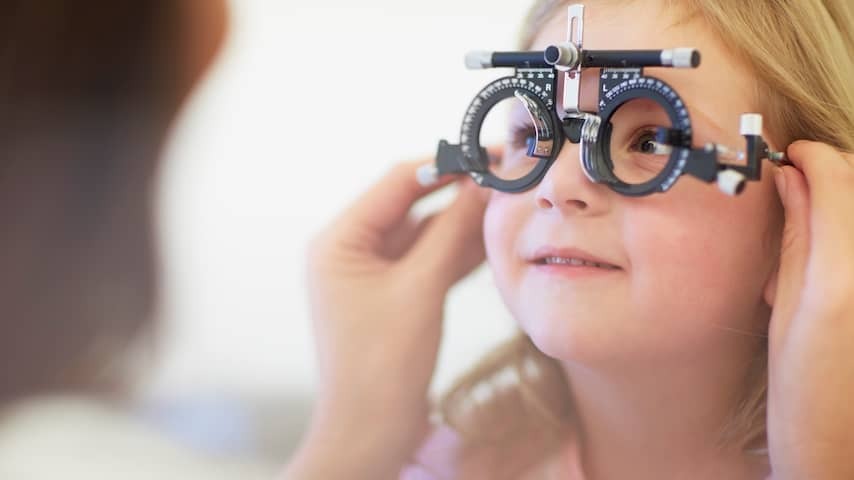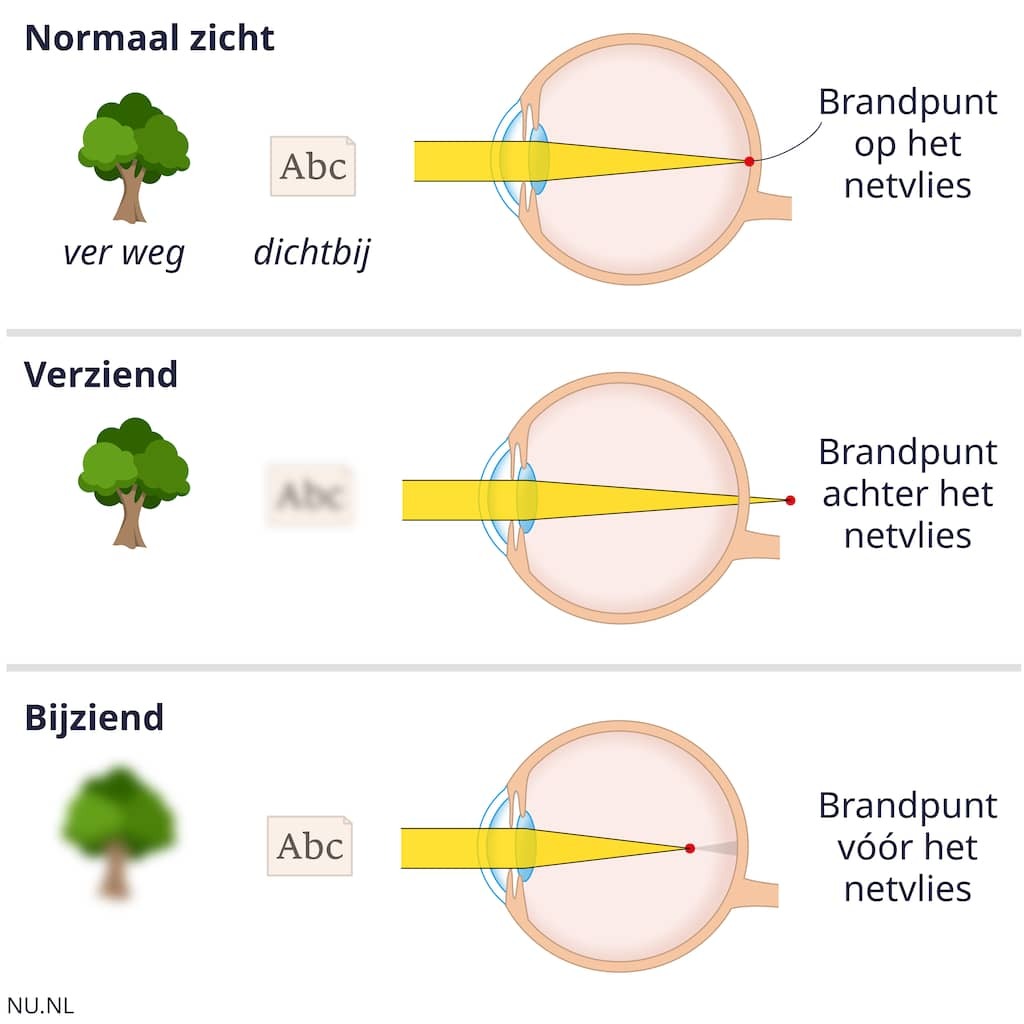
Eye care organizations are increasingly seeing that parents cannot afford glasses for their children. NU.nl asked experts if there is anything you can do to protect children’s eyes so you can prevent needing glasses.
“Parents can do little about farsightedness,” says Andrea Vergunst of the Oogfonds (Eye Fund). You are farsighted if you see objects at a distance more clearly than when they are nearby. “On the other hand, learning certain habits can help slow down or possibly even prevent nearsightedness in children.”
If you are nearsighted, you see well up close, while you see blurry at a distance. “Nearsightedness (or myopia) usually develops in childhood and can worsen as you get older,” Vergunst explains. Heredity can play a role. If one or both parents are nearsighted, as a child you are more at risk of developing nearsightedness.

Our current lifestyle is seen as an important cause of this problem and eye problems later in life. It is particularly clear that a lot of screen time among young people leads to an increase in nearsightedness. “It is essential for healthy eye growth to alternate between looking up close and far away and to get enough daylight,” says Vergunst.
And daylight is very important. “Daylight inhibits the growth of the eye. If you suffer from nearsightedness, your eyeball has grown too long. If your child goes outside regularly, about two hours a day, the growth of the eye can be inhibited.”
Looking at a screen occasionally is not immediately bad
Annet Jongmans, orthoptist and optician at children’s optician Kidzz Eyezz, sees that there is more demand for minus glasses. You need these if you are nearsighted. The glasses are filled with negative lenses, which ensure that light rays fall back on the retina.
Like Vergunst, Jongmans notes that preventing glasses is possible if the growth of the eye can be inhibited. She also thinks it is good to go outside more and look at screens less. In addition, both recommend the proven effective 20-20-2 rule: for every twenty minutes of looking up close at a screen or in a book, for example, take a break of at least twenty seconds to look into the distance, and be outside for at least two hours a day.
If your child is occasionally behind a screen, that is not immediately bad, as long as you apply this rule of thumb. At the Oogfonds, they make a distinction by age, says Vergunst:
“Under the age of two, we recommend not using a screen at all,” says Vergunst. She also advises paying attention to the distance from the eyes to the screen: “A distance of at least 30 centimeters is recommended.” According to her, it is therefore better to let your child watch TV than a tablet or phone, because that screen distance is usually greater.
Different treatments are possible
If your child is at risk of or suffers from nearsightedness, Jongmans recommends first looking at where you could make lifestyle adjustments. If the eye continues to grow too quickly, different treatments are possible. In any case, it is important to purchase glasses and have the strength checked regularly.
Don’t forget to continue to apply the 20-20-2 rule if you want to prevent nearsightedness from getting worse as much as possible, says Vergunst. Glasses and contact lenses are not yet reimbursed from basic health insurance. “But atropine drops are,” says Vergunst. These drops inhibit the growth of your eyes, just like special lenses or glasses.
So there are all sorts of things possible if you want to protect children’s eyes. That does not alter the fact that you usually cannot prevent one of your children from needing glasses anyway. Jongmans therefore wants to emphasize that if glasses are needed, it is very important to heed that.
Your eyesight is formed up to the age of twelve. It is therefore essential to pay attention to this, especially in children under the age of thirteen. At that age it is important to receive a sharp image in both eyes, otherwise the vision may be permanently limited. Then you can develop a lazy eye, says Jongmans. “For this reason, everyone should be able to purchase children’s glasses. Reimbursement for children’s glasses from basic health insurance is therefore essential as far as I am concerned.”